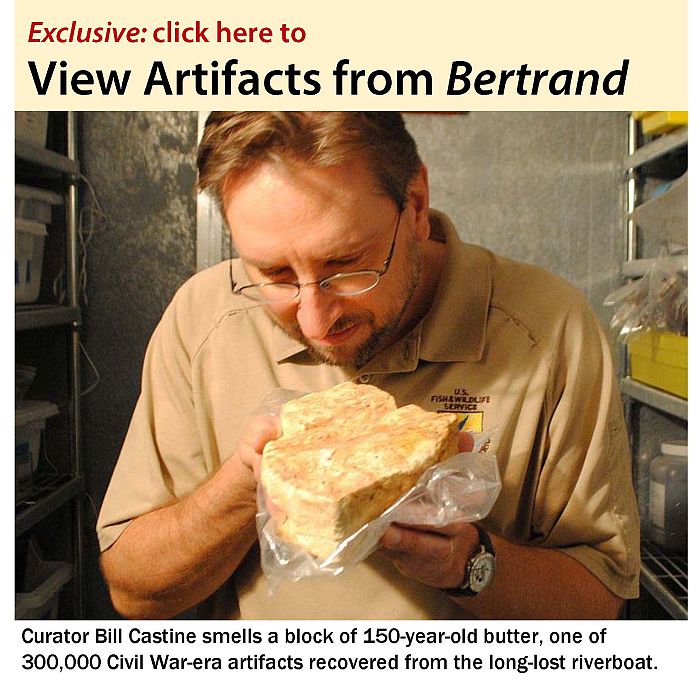Authors:
Historic Era: Era 5: Civil War and Reconstruction (1850-1877)
Historic Theme:
Subject:
| Volume 71, Issue 2


Authors:
Historic Era: Era 5: Civil War and Reconstruction (1850-1877)
Historic Theme:
Subject:
| Volume 71, Issue 2
It was a risky trip for the two young mothers, each of them bringing along two young children. On a beautiful spring morning, the first of April, 1865, Caroline Millard and Mary Atchison boarded the steamboat Bertrand at the docks in Omaha, Nebraska. They planned to travel up the muddy, swirling Missouri River to the far end of civilization — the Montana Territory — to join their husbands, who were partners in a banking operation in the rough gold-mining town of Virginia City.
Caroline’s husband, Joseph Millard, had been one of the founders of Omaha and a partner in the Omaha National Bank, where he would later become president. Caroline was not happy that her husband had decided to open a gold-exchange business in the frontier town. She was a genteel lady, involved in charity and social work, who distained the rough ways of the Montana frontier.
Mary’s husband, John Atchison, was a notary and manager of the new Allen and Millard Bank in Virginia City. Mary traveled with their five-year-old son Charles and younger sister Emma, while Caroline Millard brought Willard, aged four, and Jessie, who was two. It would be a difficult journey, but, like many pioneer mothers, they made sacrifices to keep their families together.
 In the 1860s, a trip up the shallow, muddy Upper Missouri River was a risky proposition. Riverboats faced swift, changeable currents, sandbars, floating debris, high winds or tornadoes, and a scarcity of burnable fuel. Invisible snags, or trees stuck in the mud with sharp, broken-off limbs hidden below the surface of the water, could puncture a boat’s thin wooden hull and sink it in minutes. Steam boilers could explode or become clogged with river mud in their tubes, and paddlewheels would break apart. And there were constant threats of Indian attacks on the crewmen sounding the water depth or searching for wood.
In the 1860s, a trip up the shallow, muddy Upper Missouri River was a risky proposition. Riverboats faced swift, changeable currents, sandbars, floating debris, high winds or tornadoes, and a scarcity of burnable fuel. Invisible snags, or trees stuck in the mud with sharp, broken-off limbs hidden below the surface of the water, could puncture a boat’s thin wooden hull and sink it in minutes. Steam boilers could explode or become clogged with river mud in their tubes, and paddlewheels would break apart. And there were constant threats of Indian attacks on the crewmen sounding the water depth or searching for wood.
But good money could be made in the Montana Territory. In the early 1860s, miners had discovered gold there and thousands of merchants, farmers, and others rushed to Alder Gulch and Virginia City, which became the territorial capital. As the Civil War neared its end, the federal government moved military forces to the West to protect travelers from conflicts caused by transgressions on Indian land, building seven outposts on the Missouri River, along with other facilities.
This rapidly growing population required supplies, but farming and ranching were in their infancy in much of the Rocky Mountain area and could not meet the demand. When bitterly cold weather closed the Missouri River in the winter, mining camps ran short of food, notably bacon, vegetables, coffee, sugar, and especially flour. During the particularly bad winter of 1864-1865, several wagon